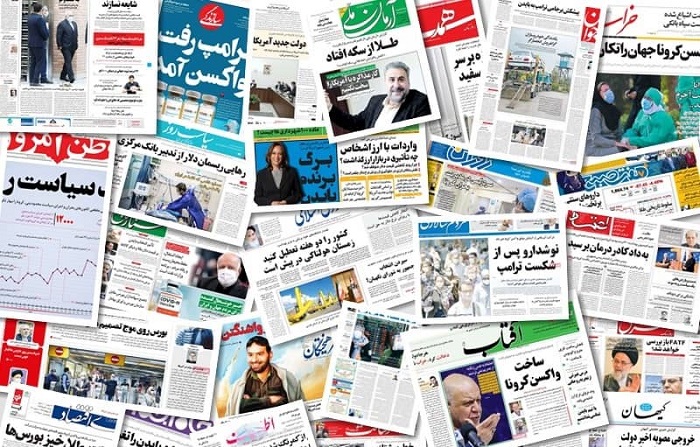
On October 30, and 31, the Iranian regime’s state media reflected the mullahs’ desperation in resolving socio-economic and how this could end the regime’s decades of tyranny.
“More important than cyber-attack or technical glitches” is the headline of Jahan-e-Sanat daily referring to the recent cyberattack on Iran’s gas stations.
“Many believe that recent disruption of gas distribution was not done by hackers. It was [by the regime] to see the reaction of people, as it prepares to increase in the fuel prices,” Jahan-e Sanat wrote.
“Officials have certainly had miscalculation in taking such a decision. Because increasing the fuel prices, is such a dangerous and destructive crisis which could result in social unrest as people are grappling with poverty, inflation, and skyrocketing prices,” Jahan-e Sanat wrote.
Jahan-e Sanat added that since the cyberattack on Tuesday, October 26, “The fuel at the free-market value o 30,000 rials per gallon has been sold”.”
In another article, titled “Officials Should Act,” Jahan-e-Sanat, warned of the economic pressures on people.
“The lower classes are degraded. When a lower-class society grows too large, we have a potentially huge population that, because they have nothing to lose, may turn to blind violence at any moment, endangering national security.”
“Everything Against the Stock Exchange” was an article on Hamdeli daily, which refers to the regime’s total bankruptcy. It also refers to the hollow promises of the regime’s new president Ebrahim Raisi his economic team. “The stock of many companies has plummeted, and sales queues are getting heavier by the minute.” “The decline of the dollar exchange rate seems to have had a significant impact on the state of the capital market. Of course, the contradictory news about the nuclear deal has also ruined the stock market situation. These heavy came amid a lot of good news about strengthening the capital market and injecting liquidity into the market” Hamdeli wrote.
“But the amount of liquidity that was supposed to enter the stock exchange market is not clear at all, and the market has also declined,” Hamdeli acknowledged.
Iran’s Nuclear Deal and Tehran’s Nuclear Extortion
While many of the western powers try to negotiation with the regime over its nuclear program, one of the regime’s former diplomats revealed Tehran’s intention to obtain a nuclear bomb.
“Sanctions can be effective for a while now. But the uranium enrichment program is advancing, and as soon as we reach the stage of nuclear weapons production, the government will be able to get concessions during the negotiations,” Fereydoun Majlisi, a former regime diplomat told the state-run Eqtesade Pouya on October 31.
“The [Raisi] government has put the eliminating of the JCPOA on the agenda. With the plan announced by the new Minister of Foreign Affairs, the revival of the JCPOA is not going to be on the agenda,” he added.
During the interview, Majlisi also warned about an economic collapse, and while referring to the drop of Iran’s exports to its allies, he foresaw that Iran is going to end up like Venezuela.